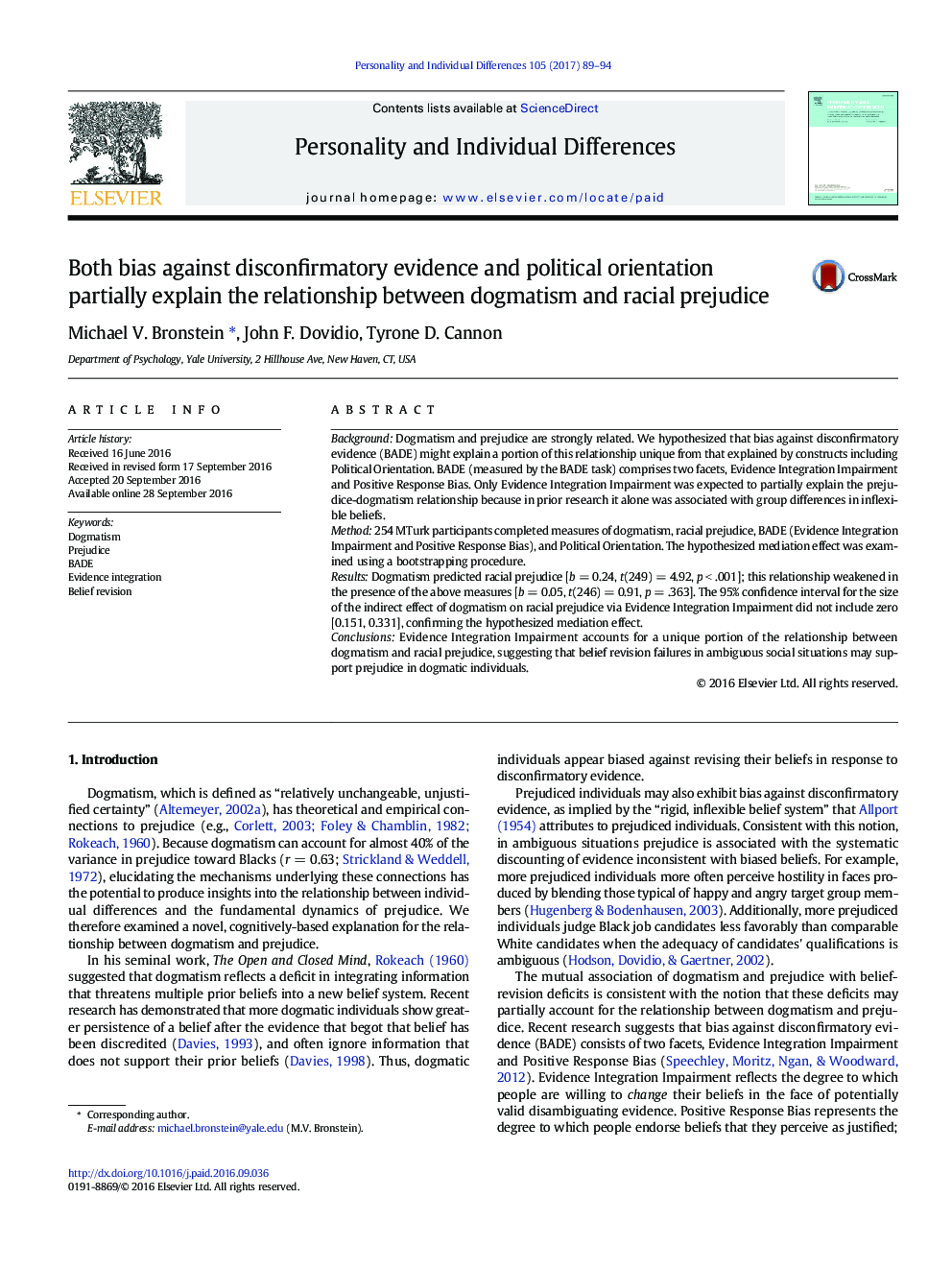| کد مقاله | کد نشریه | سال انتشار | مقاله انگلیسی | نسخه تمام متن |
|---|---|---|---|---|
| 5036034 | 1472013 | 2017 | 6 صفحه PDF | دانلود رایگان |
- Prior research has not fully explained why prejudice and dogmatism are correlated.
- We found that Political Orientation partially mediates this relationship.
- Bias against disconfirmatory evidence also partially mediates this relationship.
- These results extend prior work on belief revision, dogmatism, and prejudice.
- Implications for future research/prejudice-reducing interventions are discussed.
BackgroundDogmatism and prejudice are strongly related. We hypothesized that bias against disconfirmatory evidence (BADE) might explain a portion of this relationship unique from that explained by constructs including Political Orientation. BADE (measured by the BADE task) comprises two facets, Evidence Integration Impairment and Positive Response Bias. Only Evidence Integration Impairment was expected to partially explain the prejudice-dogmatism relationship because in prior research it alone was associated with group differences in inflexible beliefs.Method254 MTurk participants completed measures of dogmatism, racial prejudice, BADE (Evidence Integration Impairment and Positive Response Bias), and Political Orientation. The hypothesized mediation effect was examined using a bootstrapping procedure.ResultsDogmatism predicted racial prejudice [b = 0.24, t(249) = 4.92, p < .001]; this relationship weakened in the presence of the above measures [b = 0.05, t(246) = 0.91, p = .363]. The 95% confidence interval for the size of the indirect effect of dogmatism on racial prejudice via Evidence Integration Impairment did not include zero [0.151, 0.331], confirming the hypothesized mediation effect.ConclusionsEvidence Integration Impairment accounts for a unique portion of the relationship between dogmatism and racial prejudice, suggesting that belief revision failures in ambiguous social situations may support prejudice in dogmatic individuals.
Journal: Personality and Individual Differences - Volume 105, 15 January 2017, Pages 89-94
